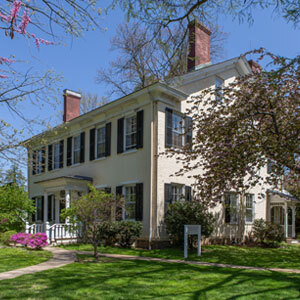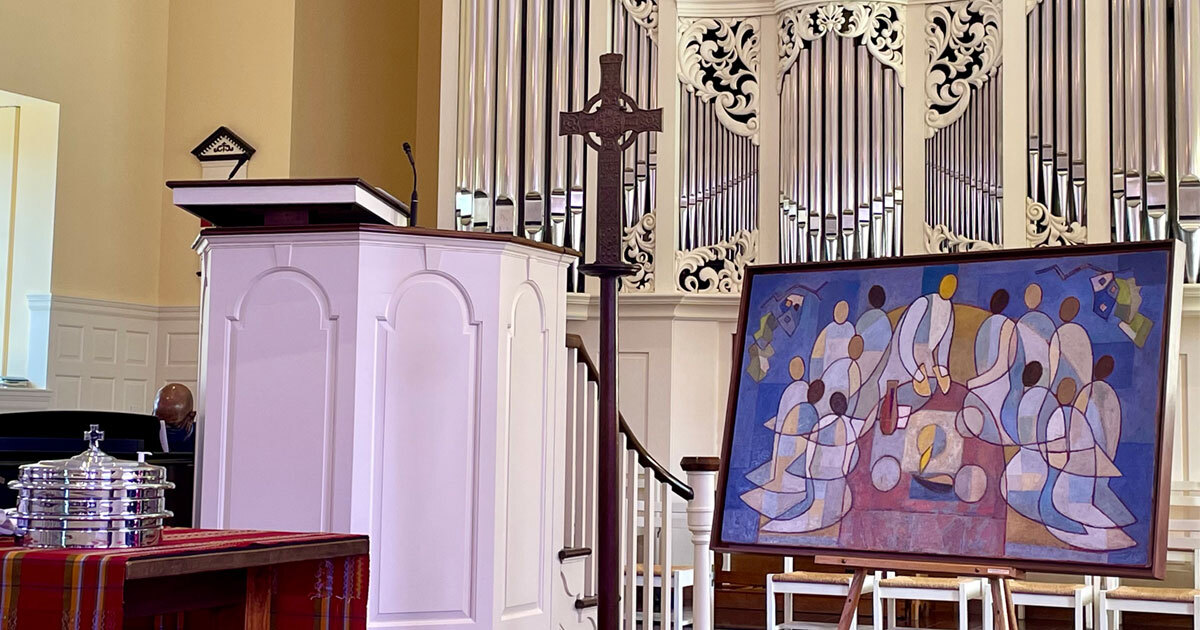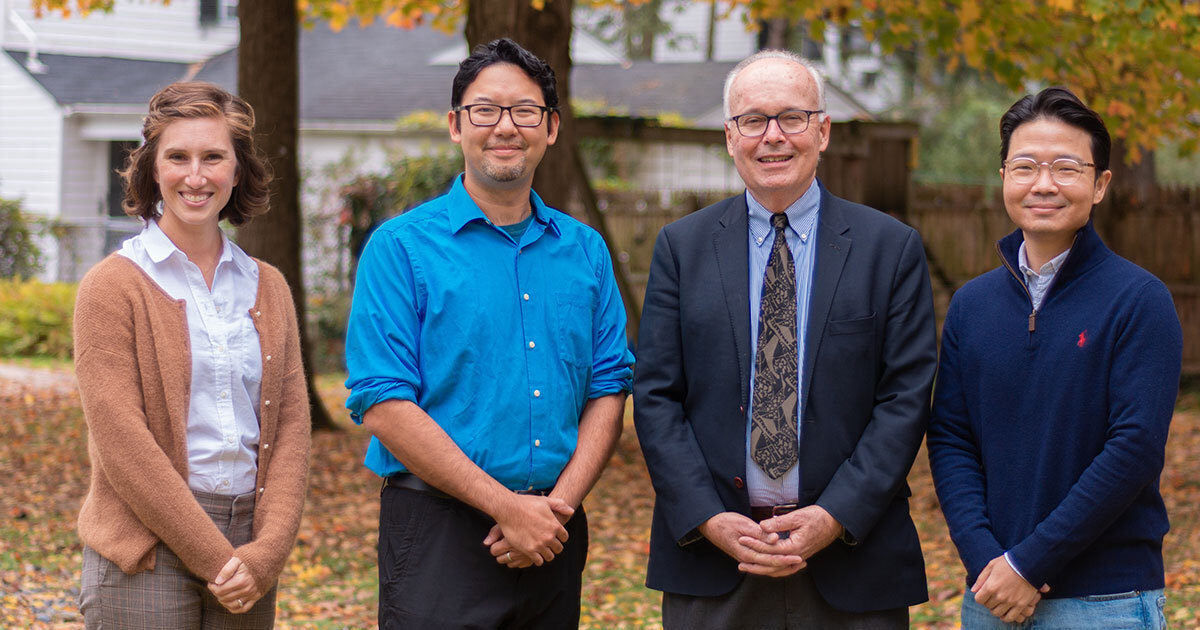Celebrating the Overseas Ministries Study Center’s Centenary Anniversary
May 3, 2022 | Campus Life, Community, Featured, International, Lectures, Ministry, Overseas Ministries Study Center, Public

The 200-year-old Alexander House is grounded in Princeton Theological Seminary’s history. Now it is also playing a role in the Seminary’s future.
The house at 58 Mercer Street, which was built for Princeton Seminary’s first professor, Archibald Alexander, recently became headquarters for the Overseas Ministries Study Center (OMSC), a renowned research institute that became a program of the Seminary in 2021 after nearly a century as an independent nonprofit.
The center has a decidedly global, 21st-century mission: Engaging in God’s mission by amplifying the voices of the world Christian movement. By exploring the dramatic growth and diverse expressions of Christianity across Asia, Africa, and Latin America, OMSC hopes the West will be able to better learn and fellowship with friends from across the global church.
On June 9, OMSC will hold a centenary celebration that will include an open house, dinner, and a special lecture honoring Gerald H. Anderson, a much-admired scholar who led the center from 1976 to 2000. Those interested in attending the lecture may do so in person or online via livestream.
Programming at OMSC
Later in the summer, the center’s signature Residential Study Program will bring to campus scholars, theologians, and church leaders from the around the world for a year of research. This year’s cohort of 10 will include researchers from Australia, India, Malawi, Myanmar, Nigeria, South Africa, and South Korea, and an artist in residence from Tanzania. They will live in Payne Hall.
“Having these leaders and scholars from the world church here on campus is really when the magic happens,” says Tom Hastings, the center’s executive director. “There is the formal, academic part of the program, but then there is the impact from the sustained interactions with the larger community that happen over tea, meals, walking to chapel and going to the library.”
The center was founded in 1922 in Ventnor, New Jersey as a place of rest and rejuvenation for American missionaries. Over time, its focus expanded to include scholarship and research, prompting a 1987 move to New Haven, close to Yale Divinity School’s Day Missions Library. Learn more about their history here.
Today, the center is engaged in a range of work aimed at amplifying and interpreting the voices of World Christianity. It publishes a respected research journal, translates the work of global scholars into English, holds an artist-in-residency program, and offers a digital certificate program.

Soichi Watanabe’s “We Are All One in Jesus Christ” displayed in the Seminary Chapel. Easten Law shares “this image embodies OMSC’s sense of mission to be a platform that convenes the voices of the world church together in study and fellowship with Christ.”
Learning together
Hastings and Assistant Director Easten Law see the center’s new relationship with the Seminary as an opportunity to support and learn from one another. The center’s focus on World Christianity, for example, can help to advance Princeton Seminary’s new curriculum goals that stress engagement with the larger world and with social issues such as racism and inequality.
“Being embedded in the Seminary gives us the opportunity to share our history of engaging the world church with students and faculty,” Law says. “As we implement our programs, we are also expanding the vision of Princeton Seminary.”
In fact, Hastings and Law bring their expertise directly to Seminary classrooms. Hastings taught a course this year on Toyohiko Kagawa, the Japanese Christian pacifist, reformer, and labor activist who was a 1916 graduate of Princeton Seminary. Law will soon be teaching a course on intercultural communications to help prepare MDiv students for ministry in a diverse, interconnected world.
Law, who has been meeting with students, said they are enthusiastic about such offerings.
“The students loved Dr. Hastings’ class. Kagawa’s life and writings gave them a window into how Christian faith was expressed in a different cultural context,” Law says. “My prayer is that the intercultural communication course I will be teaching in the fall will deepen this kind of interest in all of our MDiv students.”

The staff of the Overseas Ministries Study Center: Caitlin Barton, Easten Law, Tom Hastings, and Byung Ho Choi
The Gerald H. Anderson Lecture series
The centenary, meanwhile, will launch a new tradition for OMSC and Princeton Seminary: the Gerald H. Anderson Lecture series. The inaugural lecture will focus on Anderson’s contributions to the center and will be given by Dana Robert, Truman Collins Professor of World Christianity and History of Mission at Boston University. In future years, the lecture will be part of the Seminary’s annual World Christianity Conference.
Anderson, whose 92nd birthday is on the day of the centenary, will attend the celebration. He was a singular force in transforming the OMSC from a respite for missionaries into a research hub.
“His contribution was massive,” Hastings says. “And the Anderson lectures will make cutting-edge scholarship available to future generations.”
Celebrating Anderson on June 9 feels like a fitting way to launch a new era of OMSC, Hastings says.
“We are continuing the legacy and embracing the future,” he says. “Moving to Princeton Theological Seminary is a natural evolution and expansion of the original charism.”





